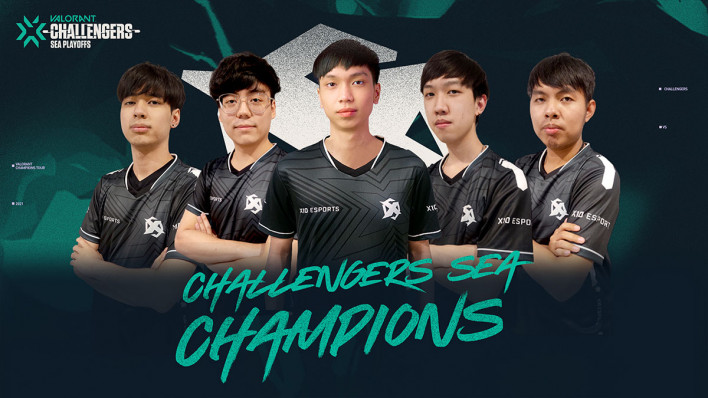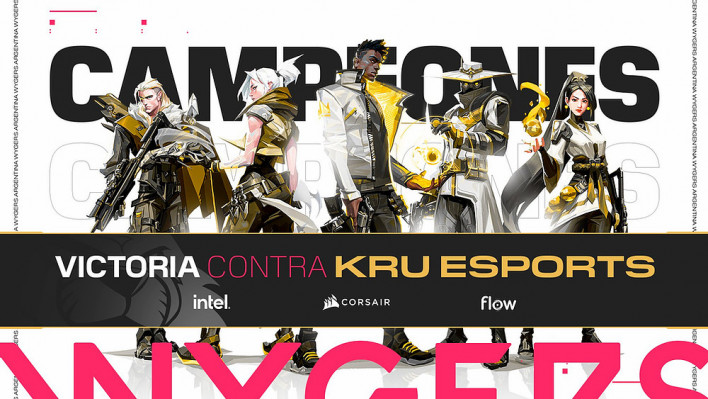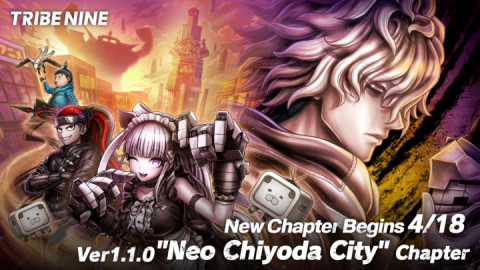
The VALORANT Champions Tour 2021 Masters Reykjavik International LAN is quickly approaching. The event will run from May 24-30 and will be the first International tournament in VALORANT esports history.
The even features 10 teams from six regions, which can make it difficult to follow with so many storylines converging in Iceland. Fortunately, Inven Global's VCT Masters Reykjavik cheat sheet is here for at-a-glance information about the playstyles, weaknesses, and key players on each team!
Here is the complete VCT Masters Reykjavik cheat sheet!

Sentinels [NA]
➕ Playstyle/strengths:
The Sentinels playstyle, much like most of North America, relies on using agent abilities to be aggressive and win aim duels. While they rely on a variety of strategic approaches on the various maps, they play at a much faster pace than we have seen from teams in the EU or KR regions.
➖ Weaknesses: Sentinels are heavily reliant on winning aim duels and not all of their players have significant LAN experience. It is possible that they won’t have quite the peaker's advantage they are used to, and this could risk kneecapping their highly aggressive, click-the-heads strategies that have carried them this far.
🔑 Key Player: Tyson "TenZ" Ngo joined Sentinels on loan from Cloud9 Blue to replace a suspended Jay "Sinatraa" Won. Sentinels can count themselves lucky to have found TenZ as the replacement since his incredible aim and game sense have been crucial to Sentinel's recent success. While ShahZam, dapr, and the other Sentinel’s are absolute superstars, TenZ is the playmaker to look to at the LAN.

Version1 [NA]
➕ Playstyle/Strengths: Version1 was a darkhorse candidate for Iceland who just barely slipped past the NA field to earn their slot. Interestingly enough, V1 plays with a notably slower pace than Sentinels and the rest of the NA region. Some have argued that they play more like an EU team on NA servers, relying heavily on map control and patient shot-calling to get the job done.
➖ Weaknesses: The biggest weakness of this team is their inconsistency under pressure. They are still a pretty new team filled with some younger players. They will have plenty of time to practice for the upcoming LAN, but not all of these players have LAN experience. Time will tell if they will perform as well on LAN as they have in their recent online matches.
🔑 Key Player: Anthony "vanity" Malaspina is the in-game leader (IGL) for Version 1. The former CS:GO veteran learned a lot of what he knows about shot calling from 100 Thieves' Joshua "steel" Nissan when the two played together at Chaos. When Steel left Chaos in 2019, Vanity took over his IGL role where he really came into his own as a leader. A lot riding on his shot-calling at the VCT Reykjavik LAN.

Team Liquid [EU]
➕ Playstyle/Strengths: Team Liquid’s stonks have been skyrocketing since April, and the team has proven to be one of the best strategic decision-makers in the EU VALORANT scene. Their carefully planned and executed strategies give them a consistent upper hand in team fights. More often than not, their advantage translates into round wins, especially when Jamppi can afford an Operator.
➖ Weaknesses: When TL sticks to their game plan, things usually go well. However, there have been some concerning decisions made by Jamppi in particular lately. On multiple occasions throughout the EU VCT Stage 2 playoffs, Jamppi could be found dashing in and dying or making other inexplicable decisions. This team, including Jamppi, will need to remain disciplined and make good decisions if they want to win.
🔑 Key Player: Adil "ScreaM" Benrlitom is this team's rock. He is a consistent high-level performer who has also shown a keen ability for clutching out important rounds under pressure. While Jamppi can also have a significant impact on TL's success, it is ScreaM that everyone looks to when the going gets tough.

Fnatic [EU]
➕ Playstyle/Strengths: Fnatic has displayed some of the best tactics and fundamentals in the EU. Their well-thought-through plans and their disciplined approach to executing make them incredibly dangerous in any given match, especially against impatient teams. While they can land frags with the best of them, it is really their levelheaded decision-making and patience that pulls them ahead in many of their matches.
➖ Weaknesses: Despite their recent successes, this roster is still pretty green. Only two of these players — Jake "Boaster" Howlett and Nikita "Derkeps" Sirmitev — have experience competing professionally outside VALORANT. This also means they are the only ones with any experience competing on LAN. While this roster has looked very strong in online competition, their youth and inexperience could be a challenge in Iceland.
🔑Key Player: Jake "Boaster" Howlett is the IGL for Fnatic. While he won’t always top Fnatic’s leaderboard, his experience and leadership have been essential foundations to this team’s success. Considering how strategy-focused this team is, Boaster's leadership will be crucial in Iceland.

NUTURN Gaming [KR]
➕ Playstyle/Strengths: NUTURN Gaming pulled off a huge upset over Vision Strikers to earn their spot at the Reykjavik LAN. NUTURN’s succeeded by aggressively theory-crafting new agent compositions to answer Vision Strikers go-to strategies. Their ever-evolving playstyle could give them a significant upper hand at the upcoming LAN, where a number of playstyles will be on display from the different regions.
➖ Weaknesses: The most important thing for NUTURN Gaming has always been staying patient and disciplined. When they are at the top of their game, they are a threat to be reckoned with. However, in past matches, NUTURN has shown the tendency to rush their strategies and make some pretty fundamental mistakes. They need to overcome their impatience if they want success in Iceland.
🔑Key Player: Kang "solo" Keun-chul is NUTURN Gaming's IGL. While NUTURN's players tend to all carry their own weight, it is solo who ends up being responsible for a lot of the decisions that are made during rounds. This team wants to outwit their opponents to get the advantage, and ultimately it's down to solo to make sure that they do.

Team Vikings [BR]
➕ Playstyle/Strengths: Team Vikings has been a dominant force in Brazil for the past few months. Team Vikings cut their teeth on aggressive plays that put the enemy under constant pressure. They will typically open up each round with a lot of utility to funnel the enemy, then they use their positional advantages to win aim-duels. This playstyle is most reminiscent of North America’s strategies.
➖ Weaknesses: Team Vikings invest a lot of their utility in the early round. When this works, they are able to pick up quick, demoralizing wins over their opposition. When it doesn’t work, however, they can be left without much utility for retaking sites and other late-round objectives.
🔑Key Player: Gustavo "Sacy" Rossi is one of the best initiators in the world. Many times throughout the past few months, Sacy has put his team on his back and carried them to the victory by picking up huge entry frags. His ability to win early-round gunfights is one of Team Vikings’ greatest advantages in any given match. When Sacy is performing well, Team Vikings’ can expect to have the upper hand in many of their encounters.

Sharks Esports [BR]
➕ Playstyle/Strengths: Sharks Esports is a Portuguese organization that competes in Brazil with an entirely Brazilian roster. They use a similarly aggressive playstyle to Team Vikings, often emphasizing early-round encounters and explosive executions on site. It will be interesting to see how their fast pace of play fares against slower playstyles from other regions.
➖ Weaknesses: This team has only been playing together since March, and none of them have a competitive history from before VALORANT. So this is a very young team with no on-stage experience. As a result, they are coming into the Reykjavik LAN as underdogs.
🔑Key Player: Wallacy "prozin" Sales primarily plays as Phoenix and Raze, with whom he slays. His pivotal flanks and gun duel wins are often the difference between Sharks Esports winning and losing a map. To win, all the Sharks are going to need to step up, but Prozin is the most important one.

Crazy Raccoon [JP]
➕ Playstyle/Strengths: Crazy Racoons is the most successful team playing out of Japan. They rely on raw aggression and personal skill to win the day. Their ability to win aim duels from an aggressive flanking position helped them qualify to the Reykjavik LAN, but only time will tell if their skill can overcome the combined teamwork and individual prowess of teams from other regions.
➖ Weakness: Crazy Racoon is strategically shallow. While their individual skill is certainly impressive, their inability to adapt and use strategy to overcome obstacles could very well be their downfall.
🔑Key player: Byeon "Munchkin" Sang-beom came to VALORANT from the Overwatch League. The Korean player is the most consistent performer for Crazy Racoons. As the only player with significant previous pro-level experience, Munchkin contributes both raw skill and leadership to this team.

X10 Esports [SEA]
➕ Playstyle/Strengths: X10 Esports is the unquestioned king of the South East Asian VALORANT scene. X10 are known for their high levels of preparation before a match. Rather than develop their own game plan and execute it, X10 will often attempt to directly adapt to their opponents preferred playstyle. This strategy could work well at the LAN, where a number of playstyles will be on display.
➖ Weaknesses: The biggest limitation of X10 Esports is their aim and sometimes questionable decision-making. Their aim is pretty good, it’s just not the best in the world. It might not hold up against the likes of the Sentinels, Team Liquid, or Fnatic, all of whom have rosters filled with seasoned FPS veterans. Sometimes X10 players will make questionable decisions too, whether it be wasting an ultimate for no apparent reason, or getting caught out of position. They will need to play clean if they want to win in Iceland.
🔑Key player: Patiphan "Patiphan" Chaiwong is the latest addition to this roster. Before jumping to VALORANT, he competed for Talon Esports in Overwatch and represented Thailand in the Overwatch World Cup. Although he is only 17, Patiphan has already proven himself to be one of the best players in SEA and the level of his contributions in Iceland will likely be the difference between X10 winning and losing their matches.

KRÜ Esports [LatAm]
➕ Playstyle/Strengths: KRÜ Esports is an Argentine organization that will represent Latin America at the VCT LAN. Their playstyle is informed by the NA playstyle since the NA and Latin American region often scrimmage against each other. The biggest difference between KRU and NA teams is that they are more methodical than many of the more gun-hoe NA squads.
➖ Weaknesses: KRÜ Esports has a decent playstyle and solid fundamentals, however, they likely lack the individual prowess required to overcome top-tier teams in straight-up gun duels. They will need to make up for their lower-level gun skills with superior positioning and strategy.
🔑Key player: Juan Pablo "NagZ" Lopez Miranda is the sniper for KRU Esports. His reliable skills with Jett and a sniper rifle have been a huge boon to KRU Esports during their run to qualify to the VCT Masters LAN. If the past is anything to judge by, KRU's success will depend heavily on Nagz hitting his shots with the Operator.
All images and logos used belong to their respective teams.
-

Aaron is an esports reporter with a background in media, technology, and communication education.
Sort by:
Comments :0





